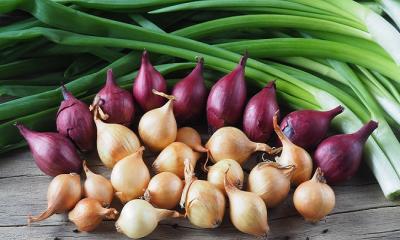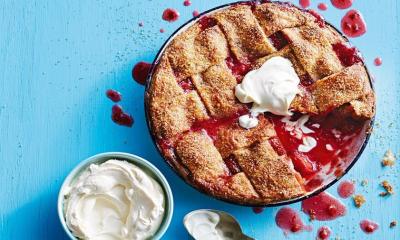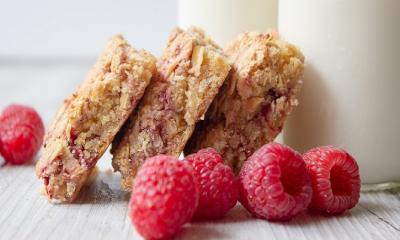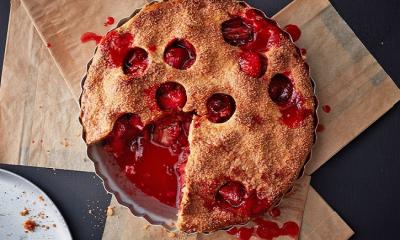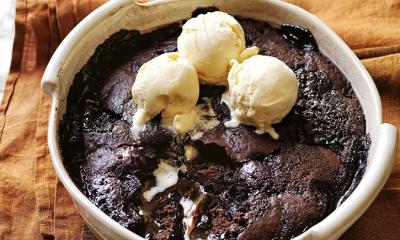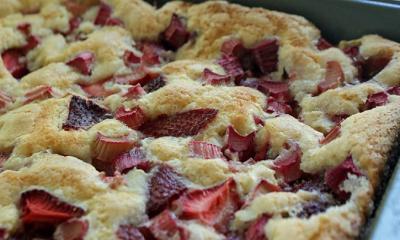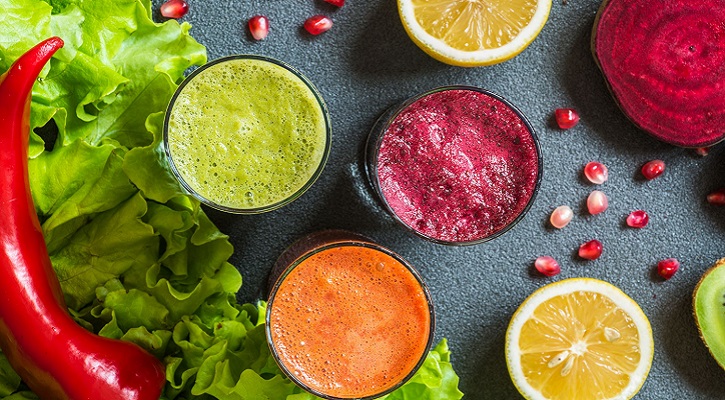
15 Best Weight Loss Drinks which Help You Feel Full and Boost Your Metabolism.
- Women`s Corner
- September 16, 2022
Most people know by now that you can make a lot of progress toward your weight loss goals by ditching sugary soda. (Which is why soda sales are dropping year by year—we’re getting pretty good at this!) It's not just soft drinks that can cause the scale to go up, though. According to the Centers for Disease Control and Prevention, other sugar-sweetened beverages (SSBs) like fruit juices and sports drinks can also account for hundreds of unnecessary calories in your diet and lead to weight gain. Actually, SSBs are the leading sources of added sugars in the American diet, per the CDC.
And while weight gain is one side effect, that stat comes with even more ominous risks for conditions like type 2 diabetes, heart disease, kidney diseases, non-alcoholic liver disease, tooth decay, and cavities. In other words, cleaning up your daily drink menu is a good idea regardless of whether or not you’re trying to lose weight.
If you are, however, certain low-calorie drinks can help by boosting your metabolism, stabilizing blood sugars, and controlling cravings, plus other health benefits. That’s not to say these refreshments are in any way miracle brews that will accelerate your progress overnight. But if you’re planning to lose weight through other lifestyle changes as well, these 15 healthy drinks could be a staple in your journey.
Read More: Feta, beetroot & pomegranate salad
Water: You might think that water is a no-brainer because, duh, it has no calories! But H2O has even more qualities that make it extremely useful for weight loss. Researchers have found that your resting energy expenditure (or the amount of calories burned while being still) can increase up to 24-30% within 10 minutes of drinking water.
Erin Palinski-Wade, R.D., C.D.C.E.S, author of Belly Fat Diet For Dummies corroborates those claims. “Drinking adequate water daily can boost hydration which can help to promote improved energy levels and mood,” she says. “In addition, drinking water before meals can help you to feel more satisfied, helping to promote portion control and possible weight loss.”In fact, many people confuse hunger for thirst. Next time you think you need to grab a snack, try downing a glass of water first and see how you feel.
Green tea: Green tea is rich in catechins, which are powerful antioxidants believed to be effective in boosting metabolism and burning fat. The most notable of those catechins is epigallocatechin gallate (EGCG), which has been researched as a particularly effective metabolic booster especially when combined with caffeine, a stimulant that may increase calorie expenditure.However, registered nutritionist James Collier, R.Nutr., warns that although catechins may work, “the amount you’d have to consume for even a tiny effect would be considerable and for a sustained period.” Nevertheless, Palinski-Wade says hot beverages in general seem to create more intense feelings of satiety, “which can help promote weight management.”
Read More: Quinoa with roast asparagus, eggs & capers
Lemon water: Lemon water has not been proven to increase metabolism or detoxification. But dropping some lemon juice in your water is a great low-calorie option to flavor what many consider to be a boring beverage. So if you’re having trouble downing enough water during the day, try squeezing this fruit into your drink. Lemon juice is also packed with vitamin C which can improve your immunity, increase iron absorption, and help reduce your risks of certain cancers.
Ginger tea: This powerful root’s role in weight loss has more to do with reversing symptoms that often hinder people from losing weight. In other words, it isn’t directly
correlated with losing weight, but can alleviate some bodily stressors that may inhibit your weight loss journey.
For example, ginger has antioxidants and anti-inflammatory properties that can help prevent cardiovascular damage and other stressors. Thanks to a compound called gingerol, ginger has the potential to improve blood sugar levels and reduce "bad" cholesterol. Some research also suggests that drinking ginger water before meals can
help your tummy feel full.
Fennel water: Fennel water is clutch because it helps reduce indigestion, which in some cases can contribute to weight gain. The antibacterial properties in fennel seeds will help to maintain a healthy gut and allow you to more easily process food. Despite what some health gurus say, scientists are still studying whether or not fennel makes a good appetite suppressor. Regardless, if you love the taste of licorice, fennel tea might be a nice, sweet, low-cal sip.
Read More: Beetroot & halloumi salad with pomegranate and dill
Apple cider vinegar: The key weight-loss ingredient in apple cider vinegar is acetic acid. It can improve metabolism and decrease insulin levels, which is huge. “One tablespoon of apple cider vinegar per day has been shown to improve blood glucose levels after meals and may help to increase the feeling of satiety, which can lead to fewer calories consumed and potential weight loss,” says Palinski-Wade.
One study conducted on people with type 1 diabetes found that apple cider vinegar slows the rate in which food empties from your stomach, so Palinski-Wade’s suggested
single spoonful may be worth a try. Just a warning, though: Consuming beverages that are high in acid can erode your teeth and aggravate heartburn.
Black tea: Like green tea, black tea contains caffeine (about 47 mg), a stimulant that is thought to increase calorie expenditure. But black tea is unique because it contains an abundance of polyphenols. These compounds have the capacity to reduce calorie intake, increase healthy bacteria in the gut, and promote fat breakdown.
Ajwain water: In Ayurvedic practices, ajwain or carom seeds have been used to treat ulcers and indigestion, which can contribute to weight gain and bloating. Carom seeds are said to have anti-fungal and antibacterial qualities that can kill off any buggers in your gut. In regards to its direct effect on weight loss, more studies need to be conducted, but some ajwain tea could have some overall positive effects digestive health.
Protein shakes: If you really want to feel full, try dumping some protein powder in your morning shakes. Protein is a macronutrient that keeps your stomach feeling satisfied. It activates hormones like GLP-1, which reduces hunger sensations and decreases ghrelin, a hormone that controls your appetite.
Palinski-Wade adds that it takes more calories to digest protein than other macronutrients, so making sure you include enough of it in your diet may offer a slight
increase in the total calories your body burns each day. “Adequate protein also helps the body to maintain lean muscle mass which makes up a large portion of overall metabolism,” she explains.
Read More: Giant couscous salad with charred veg & tangy pesto
So whether it’s whey, pea, hemp, or rice protein, choose whatever suits your digestive needs. But make sure to read the labels so are not consuming a product that has too much sugar or any harmful ingredients.
Vegetable juice: Fruit juice may be high sugar, but fresh vegetable juice is a great low-carb drink. Many people know that veggie juice is chockfull of vitamins and nutrients that are vital to overall health. But researchers have also found that people who drink a lot of veggie juice end up increasing their vegetable consumption. This could help a person lose weight especially considering the fact that veggies contain a lot of fiber, which can stave off hunger pangs.
Cumin tea: Cumin the spice that makes curry yummy has antioxidant and anti-inflammatory properties thanks to an active ingredient called thymoquinone. So if you’re feeling heavy and bloated, cumin tea could work wonders. Cumin can also lower blood sugar and LDL cholesterol levels, which may affect a person’s ability to exercise safely. While some studies have backed cumin as a decent weight loss supplement, more research needs to be done to confirm its direct effectiveness.
Coffee: Compared to black and green teas, coffee has the most caffeine with about 95 mg per cup. As mentioned before, caffeine is a stimulant that can hike up how many calories you burn. Coffee also contains theobromine, theophylline, and chlorogenic acid, three compounds that are known to affect metabolism.
“The antioxidants found in coffee may also help to curb inflammation, which can trigger weight gain in some individuals,” Palinski-Wade explains. But you certainly won't reap those benefits if you add cream and sugar. “That may have more of an impact on weight gain instead of weight loss,” she adds.
Unfortunately, the calorie-burning qualities in coffee don’t last forever, either coffee drinkers actually become tolerant to these effects over time. So it’s not be relied upon.
Read More: Pulled pork tacos with pineapple salsa
Coconut water: After a solid workout, almost nothing tastes better than a tall bottle of something cold and refreshing. Many sports drinks are formulated to refuel those participating in high-intensity exercise that lasts an hour or more. This often means they may have an excess amount of sugar that’s not needed for the average exercising adult who’s just trying to lose weight. So if you’re not training for the NYC marathon or something that requires rigorous exercise, try coconut water. Pure coconut water contains less sugar and has five key electrolytes: sodium, potassium, calcium, magnesium, and phosphorus.
Psyllium husk in water: When you put this soluble fiber in water it transforms into a liquid-y gel you can add to your smoothies or slurp it down on its own. Fiber, in general, is incredibly useful when you want to stay full and reduce how much you’re eating.
Palinski-Wade says multiple studies (including this one from 2016) have found psyllium husk to be especially good at keeping people satisfied in between meals. However, Collier warns that “it’s been shown that getting fiber from whole foods, such as oats and beans, has more beneficial health effects.” Talk with your doctor about the pros and cons of psyllium husk gel for you.
Read More: Eggs Benedict Strata
Tart cherry juice: “Thanks to its rich melatonin content, tart cherry juice has been linked with improved quality and quantity of sleep,” explains Palinski-Wade. “Since sleep deprivation can cause changes in hunger and satiety hormones and lead to excess calorie consumption, sleep improvements brought about by tart cherry juice may help fight against this, and therefore promote a healthy body weight.” Just note, the drink packs 25 grams of sugar per eight ounce serving, so it’s to be used as sparingly as possible.
Lose weight by replacing just one meal a day! Grab your blender and start whipping up easy, delicious, and satisfying smoothies with this totally doable and enjoyable weight-loss plan.
This article is taken from https://www.prevention.com/



